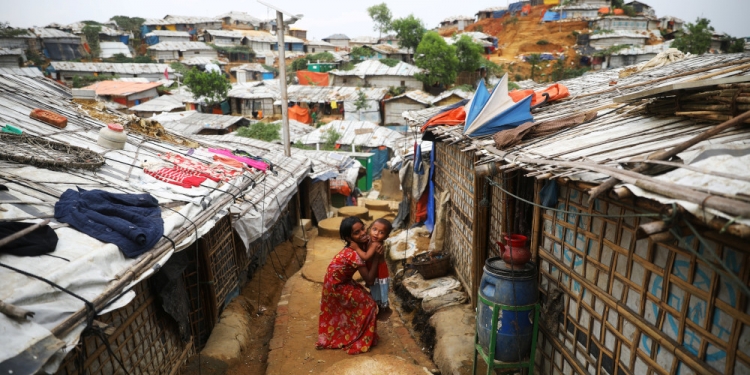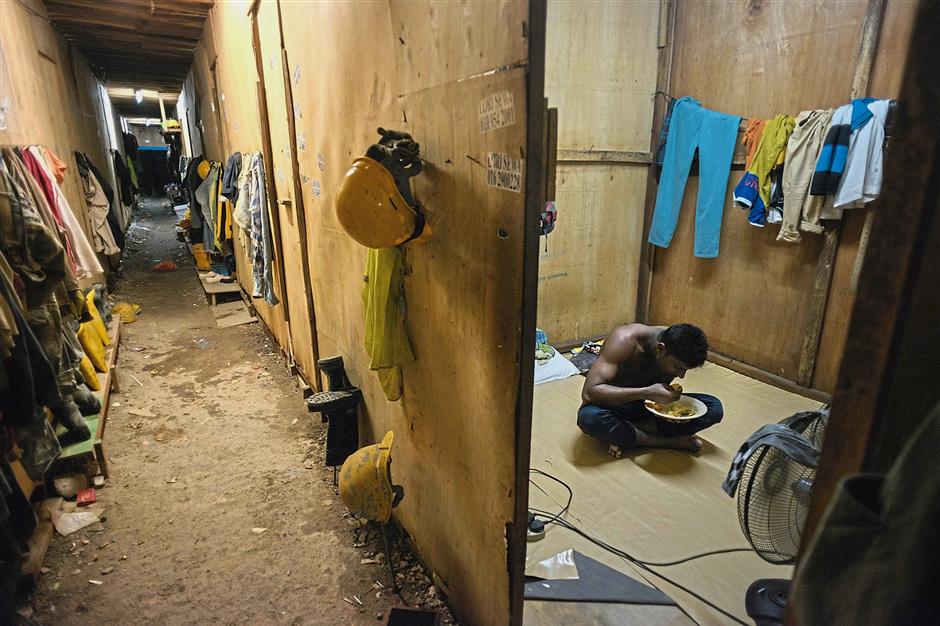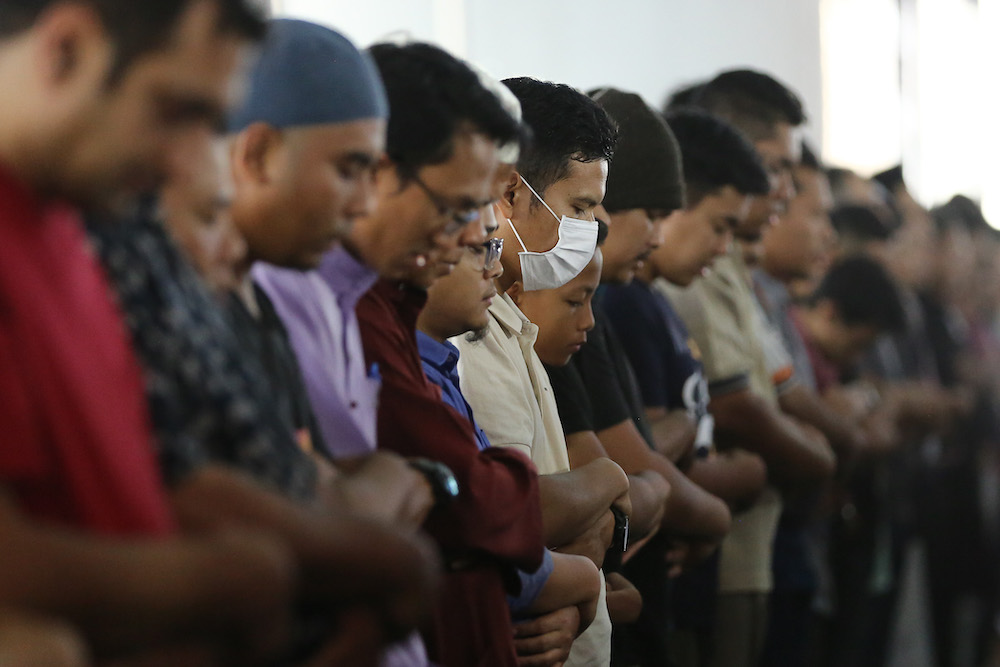One metre, that is the standard set by the WHO for social distancing. One metre, yet what seems to be so simple for many of us, might not be for others. There are people who live in dilapidated squalors, crammed together in dirty rooms with people lying together like sardines in a can.
Often times, that is the life of a migrant worker or a refugee in this country. R.AGE uncovered in a report that over 400 economic migrants were living in a space made out of plywood, with only three toilets. This number also included women and children. What happens when these disenfranchised communities, cannot even afford that one metre which doesn’t give you and I a second thought?
The marginalised in this country look like you and me, they bear the same hopes and dreams. They carry the weight of a better future on their shoulders, but when they arrive here, things change. Dreams are left to bite the dust and the discrimination continues. Persecution is the reason why refugees end up on our shore, they are being hunted in their own country because nobody leaves their home and puts their family on a boat unless it is life or death.
The Mediterranean sea alone has consumed over 18,000 people since 2014, according to the UN’s International Organization for Migration. That isn’t just a figure or a statistic, it is actual people, with colourful lives and big families, memories and intellect. However, very few see them beyond the veneer of the title, refugee or migrant worker. It is so often that you see members of these communities being reduced to nothing more than their race, that way no one has to acknowledge the harsh realities of their background.
Malaysia is not a signatory to the 1951 UN refugee convention, which means that refugees are not recognised in this country. Refugees are lumped together with economic migrants. In addition to that would be the fundamental structure of the immigration laws that states that any undocumented migrant is ‘illegal’ under the immigration act, and hence, subject to deportation, arrests, and imprisonment. But there is a problem here, no human being is ever illegal, they can only be undocumented and this refers to their immigration status.
Amidst this COVID-19 pandemic, there was a fleeting thought in my mind, do some of these people have access to clean water or soap even? Before we even get to the complicated tests and such, do they have the very basic? Most of them don’t. The International Institute for Sustainable Development revealed in a report by a Special Rapporteur that even access to clean drinking water is a concern for groups like refugees and migrant workers.
Panic buying is a privilege and it is so simple, drive to the nearest store and stock up on whatever that pleases the eye. But for a migrant worker or refugee who has to scrounge every ringgit and save in order to feed their family, the burden of spending money that they don’t have is monumental.
The Tabligh Event
Authorities are still tracking down all the attendees of the Tabligh event as it is a major COVID-19 cluster. Currently, 62% out of the 1306 confirmed cases in the country are linked to the Sri Petaling cluster. It is reported around 16,000 people attended the religious event and out of which about 2,000 are Rohingya men. The ethnic minority from Myanmar being persecuted by the Burmese military.
There’s a high chance that some among the 2000 people could be COVID-19 positive and they too could spread it to their communities. Meanwhile, the media has not shied away from its reports on the 2,000 men that are afraid to come forward and be tested.
In fact, the exact number of Rohingya attendees are elusive and the numbers we do find are conflicting. For example, The Myanmar Ethnic Rohingya Human Rights Organisation Malaysia (MERHROM) believes that only 200 Rohingyas attended. Meanwhile, The News Straits Times refrained from giving an exact number instead said that authorities are searching for around 4000 attendees out of which a “large number” were considered to be Rohingya.
Why don’t they want to come forward?
So why don’t they want to come forward? The innate discrimination and xenophobia prevalent in this country to this very day do not help. According to UNHCR, refugees in Malaysia have access to public and private healthcare, but they are often hindered by several factors such as cost of treatment, fear of moving in public and language barriers.
Although they can go to seek medical treatment, most of the time they cannot even afford to pay 50% of the bill (If they possess a UNHCR card they will get a 50% discount). Some of them do not want to travel as they live far away from the city and are afraid of getting arrested. They are also not given the right to work or the right to education, they live in constant fear, and they have not been given their dignity.
Malaysiakini had published an article about a Somali boy who was arrested while taking out the trash from his apartment. He was arrested because he did not have his UNHCR card with him which he claimed he had left at home, he was deported back to his country where his father was killed.
Mahi Ramakrishnan a refugee rights activist told SoyaCincau “Firstly, we need to understand that refugees and migrant workers are vulnerable communities and the Malaysian authorities have never treated them with basic human decency. They are hunted down in raids, arrested and detained.
“So yes, the tests are crucial and they need to be done, but people like us who work with the refugees are having a tough time convincing them that there will definitely be no arbitrary arrest.”
Mahi who has worked with the refugee community for over 13 years says that refugees and migrant workers live in unhygienic conditions and they do not have access to healthcare and medicine.
All human beings are born free and equal in dignity and rights. They are endowed with reason and conscience and should act towards one another in a spirit of brotherhood
–The Universal Declaration of Human Rights
Following the Prime Minister’s announcement on the movement control order, there has to be a coordinated effort between different agencies and ministries as well as well thought out plans, to ensure that every Malaysian and our friends who have come here are taken care of.
At the time of writing, Senior Minister Datuk Seri Ismail Sabri Yaacob has shared that 9,000 attendees from the Tabligh event have been identified and tested but 4,000 of them are still in hiding. He has assured that the government will not make any arrests. For non-Malaysians, especially from Rohingya communities, he acknowledged that some may have hidden because they don’t have documents. He said that he has spoken to the IGP that even if they don’t have documents, they need to come out and not be afraid.
“We don’t focus on travel documents but we focus on whether they are positive for Covid-19 or not. The most extreme actions taken are quarantine. I hope the Tabligh from Rohingya or anyone else from the illegal immigrants could come forward,” he said, speaking to reporters.
After numerous attempts to get the remaining attendees to get themselves tested voluntarily, the police are now planning to get them by apprehending them in their homes or anywhere they might be. The UNHCR is also doing their part by aiding the government with contact tracing, providing accurate information to refugees in their respective languages, setting up hotlines for refugees in their respective languages and they have an information portal set up for refugees to find help and other services they might need.
[IMAGE SOURCE, 2, 3]










